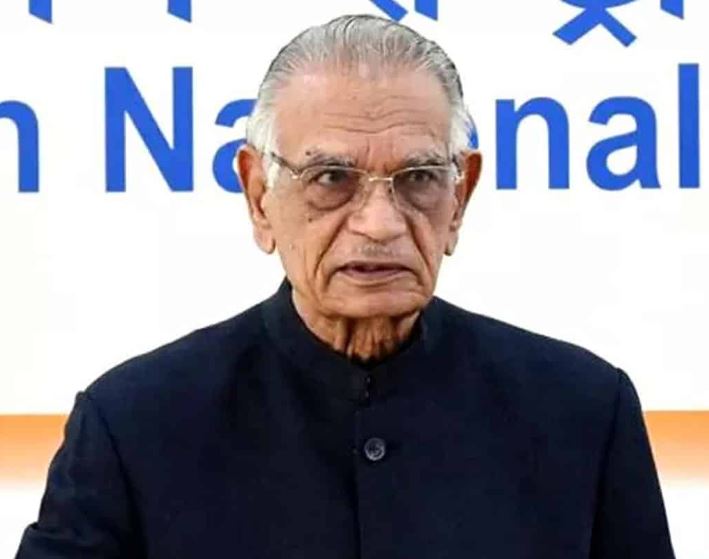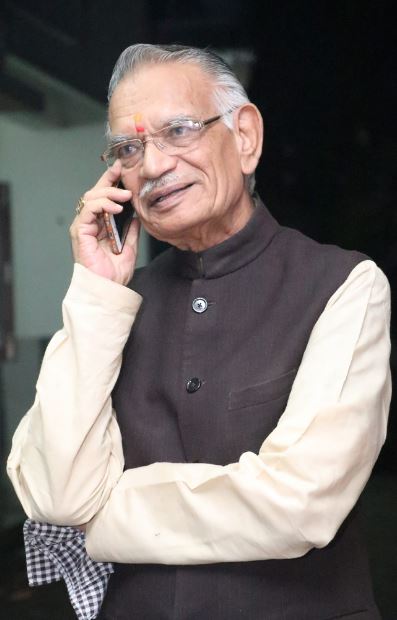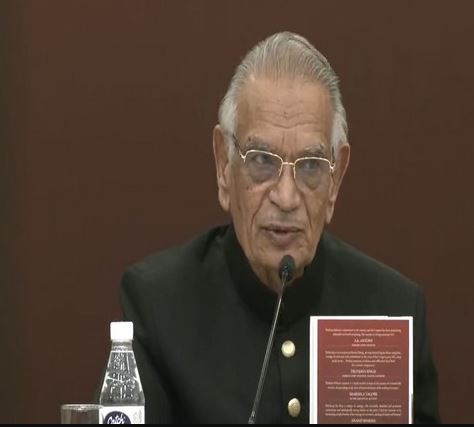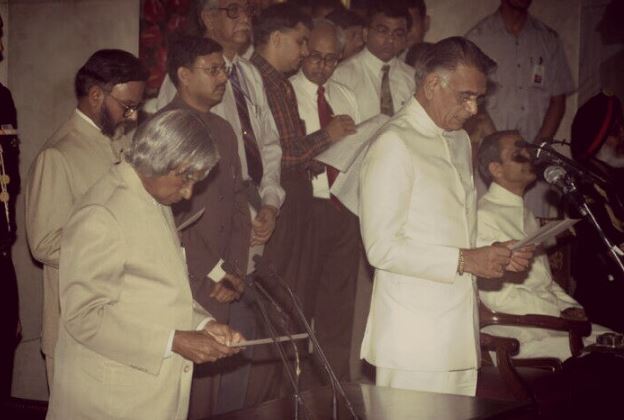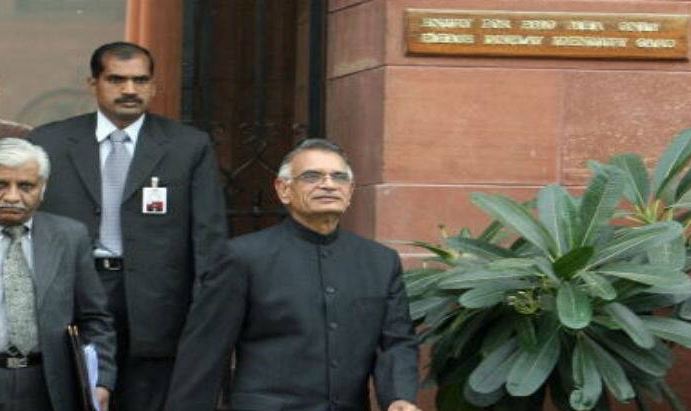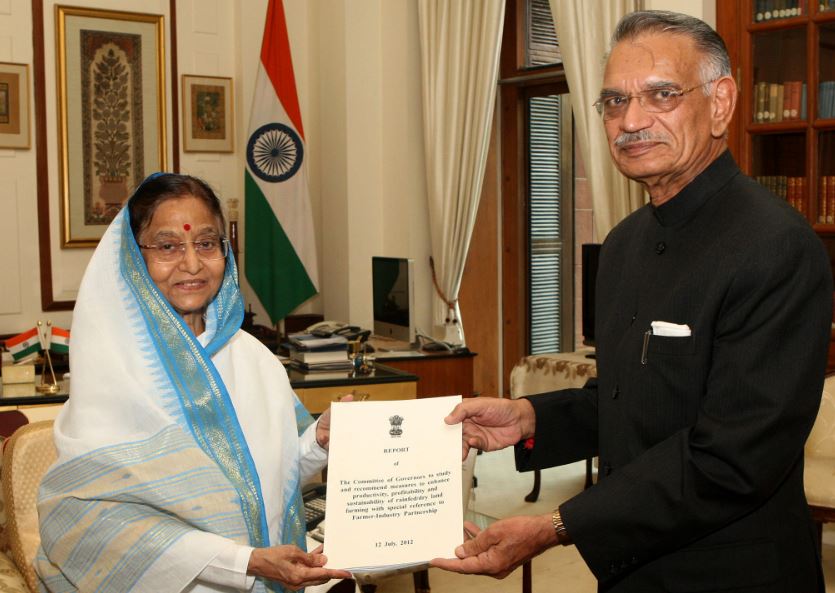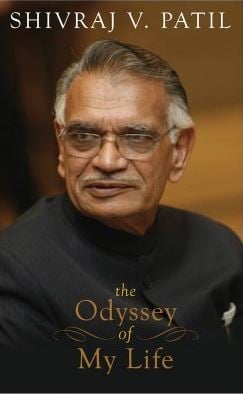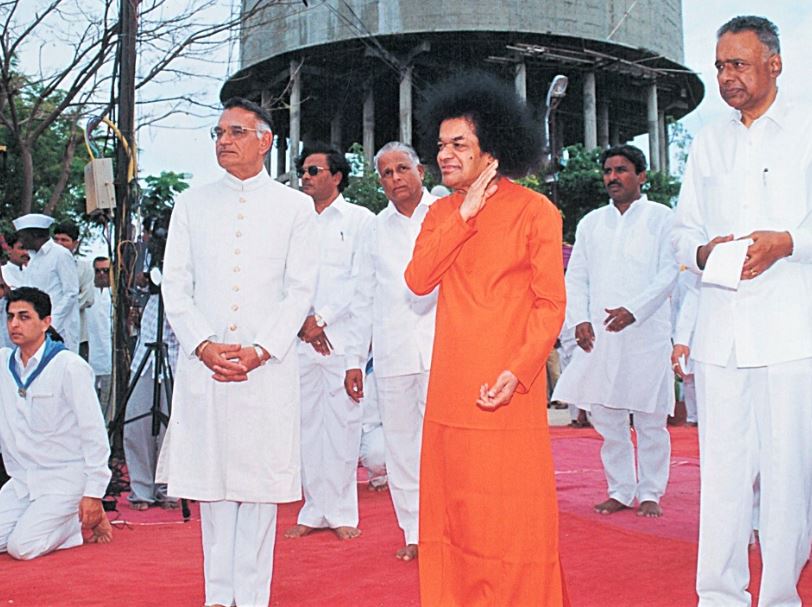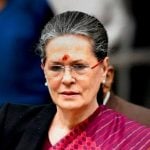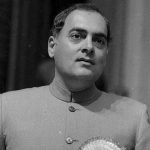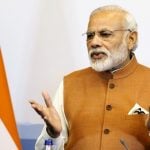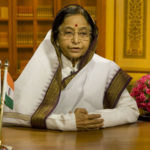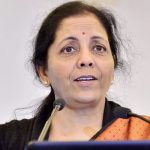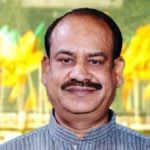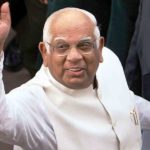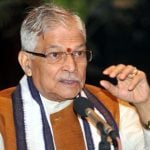Shivraj Patil Age, Caste, Wife, Children, Biography & More
Quick Info→
Wife: Vijaya Patil
Marital Status: Widowed
Age: 87 Years
| Bio/Wiki | |
|---|---|
| Other name | Shivraj Patil Chakurkar [1]Shivraj Patil- Facebook |
| Full name | Shivraj Vishwanath Patil [2]YouTube- ABP Asmita |
| Profession | Politician |
| Famous for | • Being the Minister of Home Affairs of India from 2004 to 2008 • Being the tenth speaker of Lok Sabha |
| Physical Stats & More | |
| Height (approx.) | in centimeters- 170 cm in meters- 1.70 m in feet & inches- 5’ 7” |
| Eye Colour | Black |
| Hair Colour | Salt & Pepper |
| Politics | |
| Political Party | Indian National Congress (INC)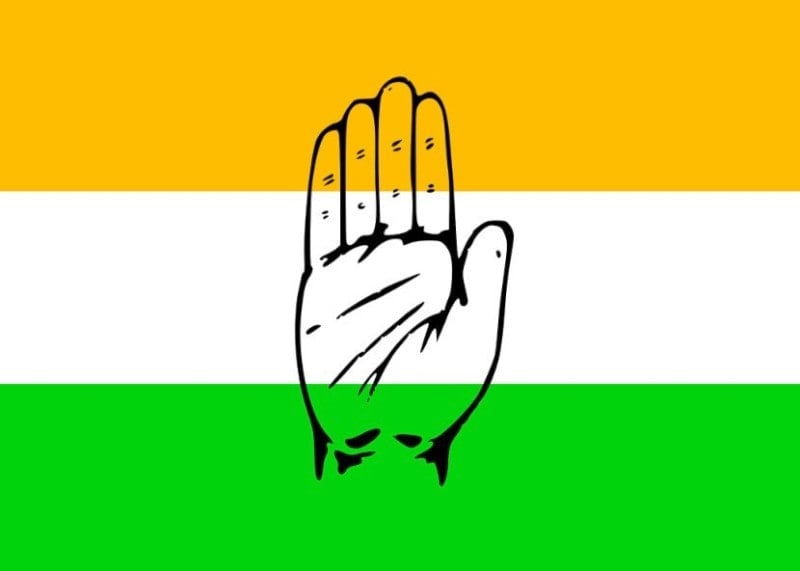 |
| Political Journey | • 1967: Joined the Indian national Congress 1967-1969: President of Latur Municipality • 1971-1972: President of Latur Municipality • 1972-1979: Member of Maharashtra Legislative Assembly (two terms) • 1974-1975: Chairman of Public Undertakings Committee • 1975-1976: Deputy Minister of Law and Judiciary, Irrigation, and Protocol of Maharashtra • 1977-1978: Deputy Speaker of Maharashtra Legislative Assembly • 1978-1979: Speaker of the Maharashtra Legislative Assembly • 1980: Elected to the seventh Lok Sabha • 1980 (May-September): Member of the Joint Committee on Salaries and Allowances of Members of Parliament • 1980 (September-October): Chairman of the Joint Committee on Salaries and Allowances of Members of Parliament • 1980-1982: Union Minister of State, Defence • 1982-1983: Union Minister of State, Commerce (Independent Charge) • 1983-1984: Union Minister of State, Science and Technology, Atomic Energy, Electronics, Space and Ocean Development • 1984: Re-elected to 8th Lok Sabha (2nd term) • 1984-1986: Union Minister of State, Science and Technology, Space, Atomic Energy, Electronics, Ocean Development and Bio Technology • 1985: Union Minister of State, Personnel and Training, Public Grievances and Pensions and Administrative Reforms • 1985-1988: Union Minister of State, Defence Production • 1988-1989: Union Minister of State, Civil Aviation and Tourism (Independent Charge) • 1989: Re-elected to 9th Lok Sabha (3rd term) • 1990-1991: Deputy Speaker of Lok Sabha • 1990-1991: Chairman of Library Committee • 1990-1991: Chairman of Committee on Private Members’ Bills and Resolutions • 1990-1991: Member of General Purposes Committee • 1990-1991: Member of Business Advisory Committee • 1991: Re-elected to 10th Lok Sabha (4th term) • 1991-1996: Speaker of Lok Sabha • 1991-1996: Chairman of Business Advisory Committee • 1991-1996: Chairman of Rules Committee • 1991-1996: Chairman of General Purposes Committee • 1991-1996: Chairman of Standing Committee of the Conference of Presiding Officers of the Legislative Bodies in India • 1991-1996: President of Indian Parliamentary Group • 1991-1996: President of National Group of Inter- Parliamentary Union • 1991-1996: President of India Branch of the Commonwealth Parliamentary Association • 1996: Re-elected to 11th Lok Sabha (5th term) • 1996-1998: Member of Committee on Defence • 1998: Re-elected to 12th Lok Sabha (6th term) • 1998-1999: Member of Committee on External Affairs • 1998-1999: Member of Rules Committee • 1998-1999: Member of Consultative Committee on Ministry of External Affairs • 1999: Re-elected to 13th Lok Sabha (7th term) • 1999-2000: Chairman of Committee on Finance • 1999-2000: Member of Committee of Privileges • 1999-2000: Member of General Purposes Committee • 2000-2004: Member of Consultative Committee • 2004: Lost the Lok Sabha elections to Bharatiya Janata Party candidate Rupatai Patil Nilangekar • 2004: Appointed as the Minister of Home Affairs • 2008: Resigned from his position as Home Minister after the 26/11 attacks in Mumbai |
| Personal Life | |
| Date of Birth | 12 October 1935 (Saturday) |
| Age (as of 2022) | 87 Years |
| Birthplace | Village Chakur, Latur district, Marathwada region, the princely state of Hyderabad, British India (now in Maharashtra, India) |
| Zodiac sign | Libra |
| Nationality | • British Indian (12 October 1935-15 August 1947) • Indian (15 August 1947-Present) |
| Hometown | Latur, Maharashtra, India |
| College/University | • Osmania University, Hyderabad • Bombay University, Mumbai |
| Educational Qualification(s) | • B.Sc. from Osmania University, Hyderabad • LL.B. from Bombay University, Mumbai • LL.M. from Bombay University, Mumbai [3]loksabhaph.nic.in |
| Religion | Hinduism |
| Caste/Sect | Lingayat Community [4]Business Standard Note: Shivraj Patil follows Lingayatism which is based on Shaivism and is generally considered a Hindu sect as its beliefs relates to many Hindu practises. It is influential in South India, majorly in Karnataka. |
| Address | "DEO GHAR," Sadbhavna Nagar, Ausha Road, Latur, Maharashtra, 413512 |
| Controversies | • Changing Clothes Controversy: In September 2008, while the Delhi serial blasts victims were fighting for their lives in hospitals, the then Home Minister of India Shivraj Patil was busy changing clothes for public appearances. On the evening of the blasts between 6:30 pm to 10:30 pm, changed at least three suits for media interaction and his visit to the site of blast. At 6:30 in the evening he was spotted wearing a white suit at the CWC meeting and after hearing the news of the blasts, Shivraj apparently went back to his home and came dressed in a dark-coloured suit for media interaction. Later, at around 10:30 pm, during his visit to the blast site for customary inspection, Patil was again spotted in a white suit, but not the one he wore at the CWC meeting. After the incident, Patil was condemned for changing clothes when the country suffered a terror attack. He was also referred to as the Nero of India for his actions. [5]DNA India Later, in a media conversation, when he was asked to speak upon the controversy, Patil said, "I live in a clean, neat manner. If I don’t get angry with people; if I keep my cool when it is necessary to keep cool when such incidents happen, you find fault with me. And if they are doing it, do you expect me to reply to that kind of criticism against me? I will leave it to the people to judge. You judge yourself. Is this the correct way of criticising a politician? You criticise his policies, you don’t criticise his clothes." • Controversial Remark on Gita: In October 2022, during the book launch event of Mohsina Kidwai's biography in Delhi, Shivraj Patil landed into a controversy for calling Krishna's teaching to Arjuna in Mahabharata as Jihad. Stating that 'Jihad' which Krishna had taught Arjuna was not just in Gita or Quran, but also in the Bible. [6]The Indian Express He said, "It's said there is a lot of discussion on Jihad in Islam religion…even after all efforts if someone doesn’t understand clean ideas, then power can be used. It is not just in the Quran Sharif, but also in Mahabharata of which Gita is a part. Shri Krishna also talks to Arjuna about Jihad. It is not like this is only in the Quran Sharif or Gita but in Christianity also it is written…Christ has said that I have not come here to establish peace but I have come here with sword.” He added, "If even after explaining everything, people do not understand and they are arriving with weapons then you cannot run, you cannot call that jihad and you cannot call it wrong, this is what must be understood, there should not be this concept of making people understand with weapons in hand.” Patil was severely criticised for his comments on Gita by the media and public. The Bharatiya Janata Party also condemned Patil's comments. In an interview, when asked to comment on the controversy, BJP leader Atul Bhatkhalkar said that what else could be expected from a leader who had denied the existence of Lord Rama. He said, "Shivraj Patil’s mental balance has been disturbed. What else is expected from Congress leader Shivraj Patil, who denied the existence of Rama, mistreated minorities, and supported terrorists and Naxalites? His head is rotten. The ideology of Congress is rotten.” |
| Relationships & More | |
| Marital Status | Widower |
| Marriage Date | June, 1963 |
| Family | |
| Wife/Spouse | Late Vijaya Patil |
| Children | Son- Shailesh Patil (politician)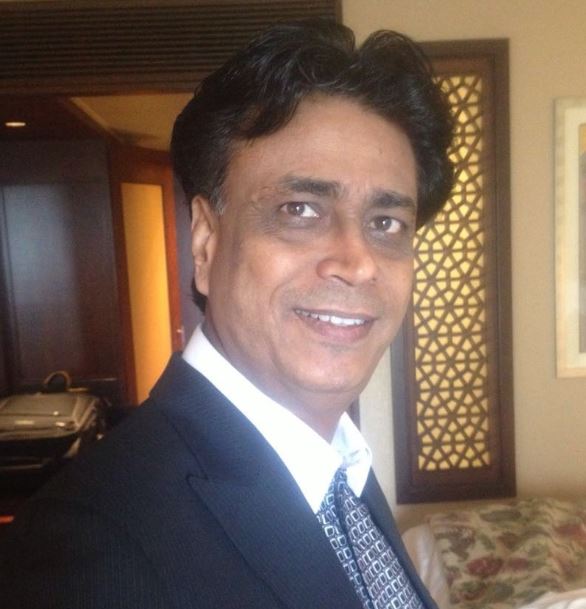 Daughter- Late Sapna B. Patil (advocate) 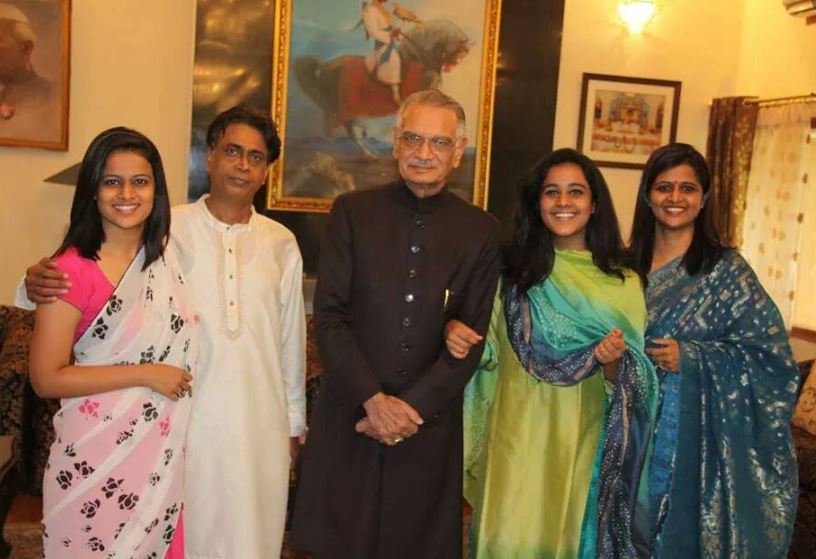 Note: Shivraj's daughter, Sapna, committed suicide at her husband's residence in Bangalore in 2002. She was 35 years old at the time of her death. |
| Parents | Father- Late Vishwanath Patil Mother- Late Bhagiriti Bai |
| Money Factor | |
| Salary (approx.) | In 2015, as the Governer of Punjab, Shivraj Patil received a monthly salary of Rs. 5,00,000 and some other allowances. |
Some Lesser Known Facts About Shivraj Patil
- Shivraj Patil is an Indian politician and a member of the Indian National Congress (INC) who served as the tenth speaker of the Indian Parliament from 1991 to 1996. From 2004 to 2008, Patil served as the Minister of Home Affairs of India.
- Patil grew up in a middle-class family in Latur, Maharashtra, India.
- After obtaining a post-graduate degree in law, Shivraj began teaching law at a college. He did the job for around six months and then moved to his hometown Latur, where he started practising law. After a few years, he ventured into politics.
- Shivraj Patil began his political career by joining the Indian National Congress (INC) in 1967. Subsequently, he was elected as the President of the Latur Municipality.
- Elected as a Member of the Maharashtra Legislative Assembly for two consecutive terms (from 1973 to 1978 and from 1978 to 1980), Patil held various important positions like Chairman of the Public Undertakings Committee (1974-1975), Deputy Minister of Law & Judiciary, Irrigation, Protocol, Maharashtra (1975-1976), Deputy Speaker of the Maharashtra Legislative Assembly (1977-1978), and Speaker of the Assembly (1978-1979).
- Shivraj Patil got elected to the seventh Lok Sabha in 1980. Subsequently, he was elected to the Lok Sabha for six consecutive terms, i.e., in 1984, 1989, 1991, 1996, 1998, and 1999. Patil contested the Lok Sabha elections again in 2004, but he lost to Rupatai Patil Nilangekar, a candidate of the Bharatiya Janata Party.
- He served as the vice president of the Council of Scientific & Industrial Research (CSIR), New Delhi, from 1983 to 1986.
- Inducted in the Indira Gandhi government as the Minister of State for Defence from 1980 to 1982 for the first time, Patil later went on to hold various ministerial posts like Minister of Commerce (independent charge) (
1982-1983), Minister of Science and Technology, Atomic Energy, Electronics, Space, and Ocean Development (1983-1984), Union Minister of State, Science and Technology, Space, Atomic Energy, Electronics, Ocean Development, and Bio-Technology (1984-1986), Union Minister of State, Personnel and Training, Public Grievances and Pensions and Administrative Reforms (1985), Minister for Defence Production, Minister of Civil Aviation and Tourism (independent charge) (1988-1989), and Minister of Home Affairs (2004-2008).
- During his tenure as the speaker of the tenth Lok Sabha, Shivraj Patil did extraordinary work and took many initiatives which were applauded by various quarters. He was equally respected by both the parties- ruling and opposition. Patil has successfully helped defuse the tensions and ease the situation on several instances when Lok Sabha became tense and tumultuous. He is often admired for peacefully conducting the House during debates on various controversial issues like the criminalisation of politics and bank scams.
- While Shivraj was the speaker of the Lok Sabha, the house discussed and rejected the first-ever motion for the impeachment of a sitting judge of the Supreme Court. Patil gave special attention to the case and consulted the matter with various parties and groups, ensuring that proper procedure was followed to consider the motion as it was a matter of great importance.
- In 1993, Patil disqualified 20 members of the Lok Sabha by bringing in the provisions mentioned in the 10th schedule of the Constitution of India. While carrying out the disqualification process, Shivraj mentioned that to eliminate the threat of floor crossing, the anti-defection law included in schedule 10 of the Indian Constitution should have more logical sections.
- During his tenure as the Speaker of Lok Sabha, he worked towards the growth of the Committee System of the Indian Parliament. On 31 March 1993, Patil, in a step towards making the Parliament more powerful in its exercise and control, formally integrated seventeen Departmentally-related Standing Committees of Parliament after discussing the matter with party leaders and Lok Sabha members. Although the matter was put up several times, in different Lok Sabhas and three Subject Committees were constituted in the eighth Lok Sabha, it was Patil who established the concept of Committees.
- Shivraj also pushed the ongoing computerisation and modernisation efforts of the institutional arrangements of the Lok Sabha Secretariat. Working hard towards the computerisation of the information service to the Lok Sabha members, Patil ensured that various index-based databases of information were developed to provide objective, reliable, and authoritative data to Lok Sabha members on a regular basis. He also ensured the computerisation of a large number of Lok Sabha activities. Notebook Computers were made accessible to the Parliamentarians so that they could access instant and up-to-date information on various subject matters to effectively conduct their parliamentarian duties.
- Considering his efforts to strengthen the Parliament, the Indian Parliamentary Group introduced an Outstanding Parliamentarian Award to be presented to a distinguished parliamentarian each year for his exemplary services to the Parliament.
- During Shivraj’s tenure as the Speak of the Lok Sabha, India hosted four big international conferences- the 37th Commonwealth Parliamentary Conference in September 1991, the 89th Interparliamentary Conference in April 1993, the Sixth Commonwealth Parliamentary Seminar in January 1994, and the First Conference of the Association of SAARC Speakers and Parliamentarians, in July 1995.
- Patil also granted two research fellowships (one each in Hindi and English), to selected scholars for undertaking original studies on subjects of parliamentary interest.
- In spite of losing the 2004 Lok Sabha elections, Shivraj Patil was appointed as the Minister of Home Affairs in 2004. Extensively considered an ineffective minister, Patil’s journey as the Home Minister of India was impaired by several debacles. Starting from the 2006 Malegaon bombings at a Muslim graveyard, during his term, the country saw several terror attacks like the 2008 serial blasts in Delhi and the 26/11 Mumbai attack.
- In 2007, Patil was accused of mishandling the Nandigram Violence. Reportedly, despite repeated requests from the West Bengal government to send the Central Reserve Police Force to Nandigram to restore law and order in the area, Patil refused to do so. The violence further resulted in police firing and killing of men and women in Nandigram.
- Four days after the 26/11 attack in Mumbai, on 30 November 2008, Shivraj resigned from his position as the Home Minister of India, taking moral responsibility for the security lapse that led to the attacks.
- Two years later, in January 2010, Shivraj was appointed as the Governor of the Punjab and Chandigarh administrations. He served in the position for five years and resigned from it in 2015.
- Besides being a politician Shivraj Patil is also an author. He has penned several books including Reminiscences and Reflections, Vision of India, Ecstasy and Agony of a Presiding Officer, Fragrance of inner self, and Dialogues. Patil has also penned an autobiography ‘Odyssey of My Life.’ Apparently, he was criticised for omitting to mention about the controversy that arose after the Delhi bombings in 2008 for changing his clothes thrice for public appearances on the night of the serial blasts.
- In his spare time, Patil loves to read, write, swim, ride a horse, shoot, paint, and practise farming.
- He has a deep faith in the Indian guru Sathya Sai Baba.
- According to his Lok Sabha profile, Shivraj Patil is also an advocate, agriculturist, and professor of Law.
- Shivraj Patil has the rare distinction of being unanimously elected as the speaker of the tenth Lok Sabha. [7]BrandBharat.com
- Shivraj Patil is often known among his fellow politicians for his fairness.
- In 2007, Shivraj Patil was considered a suitable candidate for the presidential elections. However, his name was dropped by the party after the Left opposed his candidacy. Later, the name of Pratibha Patil, the then Governor of Rajasthan was proposed for the position by Congress President Sonia Gandhi. Later, Shivraj’s name was proposed for the position of the Vice President of India. [8]The Economic Times
References/Sources:

